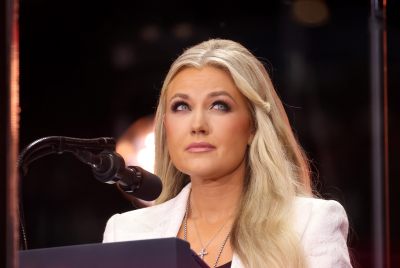Trump Tariffs Slammed As US President's Trade Mandate Struck Down By Federal Court
The judges argued that the US Constitution grants Congress, not the president, exclusive power to regulate commerce, and IEEPA doesn't authorise 'unbounded' tariff authority.

On 28 May 2025, a federal court delivered a crushing blow to President Donald Trump's signature trade policy, ruling his sweeping tariffs illegal and halting their enforcement.
The US Court of International Trade, in a unanimous decision by a three-judge panel, declared that Trump overstepped his authority by imposing global import taxes under the International Emergency Economic Powers Act (IEEPA).
This landmark ruling, detailed by Business Insider, disrupts Trump's aggressive trade war strategy, which aimed to reshape global commerce and reduce the US's £892 billion ($1.2 trillion) trade deficit.
As markets rally and businesses breathe relief, the decision raises questions about America's economic leverage and Trump's next move.
Challenge Presidential Overreach
The court's ruling dismantles Trump's use of the 1977 IEEPA, which he invoked to slap 10%tariffs on imports from nearly every country, alongside steeper levies on China, Canada, and Mexico.
The judges argued that the US Constitution grants Congress, not the president, exclusive power to regulate commerce, and IEEPA doesn't authorise 'unbounded' tariff authority. 'The court does not read IEEPA to confer such sweeping powers,' the ruling stated, per Reuters.
The decision, prompted by lawsuits from 12 states and small businesses like VOS Selections, a New York wine importer, also struck down specific tariffs tied to fentanyl trafficking, as they didn't directly address the cited emergency.
On X posts, users like @mryoung151 hailed the ruling as a check on executive power, while @IamSean90 falsely claimed an Obama-appointed judge ordered anti-tariff payments, highlighting rampant misinformation.
The Trump administration swiftly appealed to the US Court of Appeals for the Federal Circuit, with potential escalation to the Supreme Court. White House spokesperson Kush Desai blasted the ruling, saying, 'It's not for unelected judges to decide how to address a national emergency,' per Yahoo.
Yet, the court's stance is clear: trade deficits, a 49-year norm, don't justify emergency powers.
Shield Businesses from Economic Chaos
Trump's tariffs, announced on 2 April 2025 as 'Liberation Day' measures, sent shockwaves through global markets, raising costs for US businesses and consumers.
VOS Selections reported a 16% sales drop in Q1 2025, with owner Victor Schwartz warning his business 'may not survive' the levies, per Business Insider.
The ruling offers relief, with S&P 500 futures jumping 1.4% and the US dollar surging against the euro and yen, per The Washington Post.
However, uncertainty lingers as tariffed goods pile up at US ports, and businesses grapple with disrupted supply chains. Oregon Attorney General Dan Rayfield, a plaintiff, celebrated the decision, stating, 'Trade decisions can't be made on the president's whim.'
Rethink Global Trade Leverage
Trump's tariffs were meant to force trade concessions and boost US manufacturing, but the ruling weakens his negotiating hand.
Without IEEPA's emergency powers, the administration must rely on slower trade investigations or other statutes, like Section 232, which still supports tariffs on steel and autos, per Axios.
Analyst Alec Phillips noted that this 'represents a setback' for most US trade partners, who now gain leverage in talks, per The Sydney Morning Herald.
America's Trade War at a Turning Point
The court's decision marks a pivotal moment, Trump's tariff-driven vision to 'Make America Wealthy Again' has been kneecapped, exposing the limits of executive power.
Businesses and consumers may dodge higher costs for now, but the appeal process and ongoing trade talks keep uncertainty alive.
Trump's economic agenda hangs by a thread, only bold, legal recalibration can salvage his trade war ambitions.
© Copyright IBTimes 2025. All rights reserved.




















